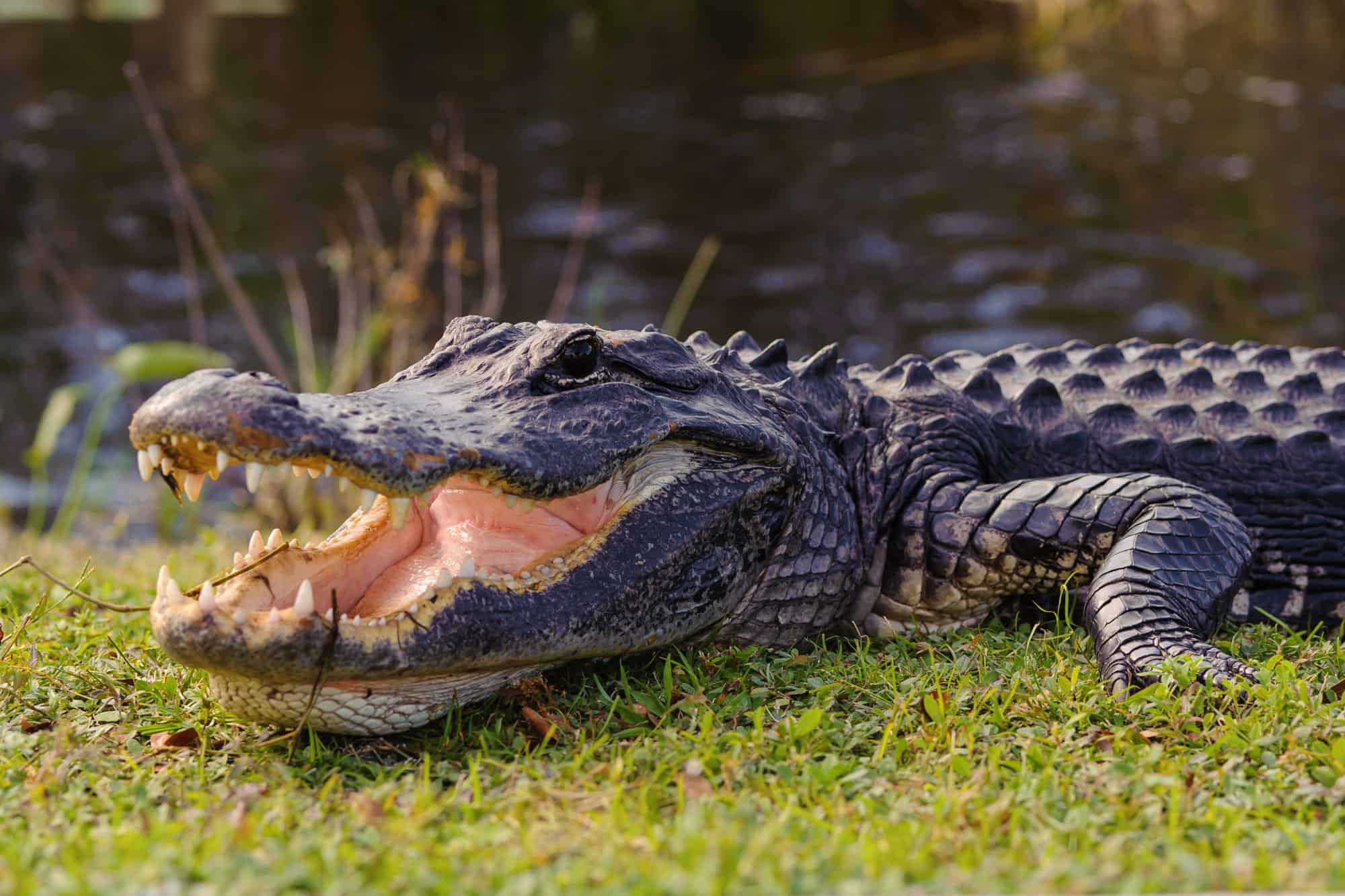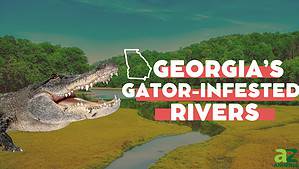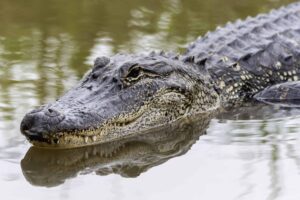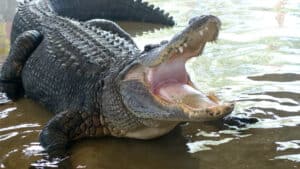Georgia has between 200,000-250,000 alligators. The hot and humid climate and the wetlands across the state make it an excellent home for alligators. The Okefenokee Swamp in the state’s southeast is the largest blackwater wetland in North America and a hot spot for alligators. But on humid summer days, people of the Peach State, like in Columbus, also like swimming outside. When considering alligators in Columbus: is it safe to swim?
Alligator Hunting Habits
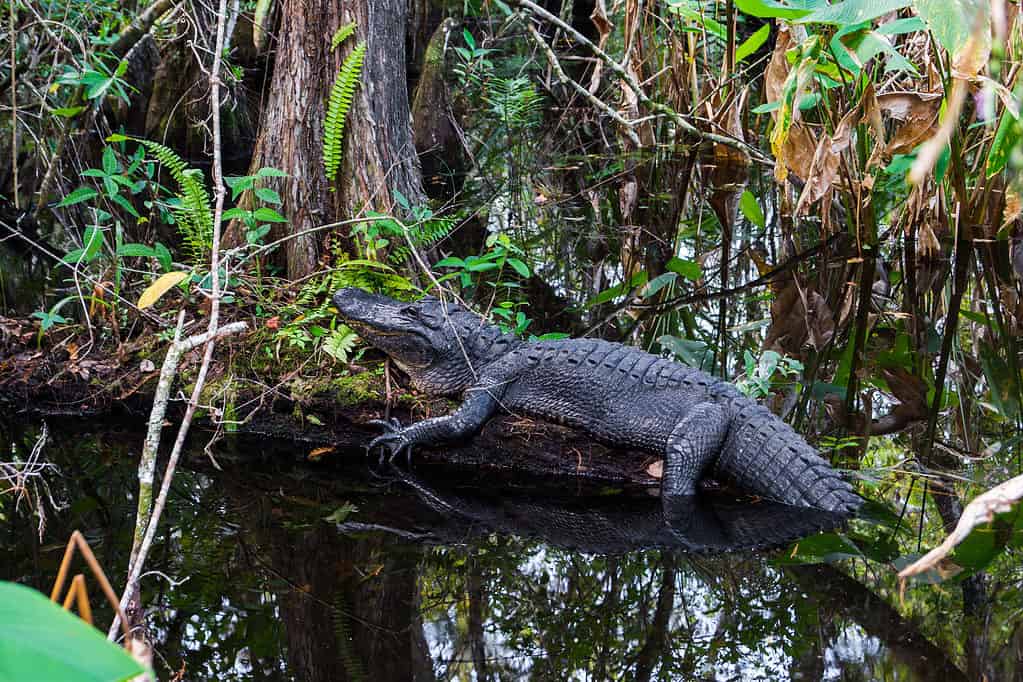
Alligators like to ambush prey and use dense undergrowth to hide. Make sure you are swimming in an open area when considering alligators in Columbus and whether swimming is safe.
©timyee/Shutterstock.com
Alligators have a lifespan of between 35-50 years. During that time, many of them grow to around 10-15 feet in length and can weigh over 1,000 pounds! Their size is impressive; however, they make terrible pursuit predators because they have four short, stubby legs. That is why alligators use the ambush technique to catch prey. Using their bumpy appearance and dark gray coloring, alligators blend into the murky water and debris that is floating on the surface. Then, alligators glide quietly toward prey. Alligators snap up their prey in their lightning-fast jaws when they are within reach.
Alligators prefer to target prey they can swallow easily, like birds, fish, snakes, or turtles. Usually, an alligator feeds only a couple of times a week.
The outside environment regulates an alligator’s internal temperature, making them ectothermic creatures. The sun warms them up, and the water cools them off. Alligators will be in deeper water when there’s a hot, humid day to cool down. So when it comes to alligators in Columbus: is it safe to swim?
Alligator Habits in Columbus, GA, and Swimming Safely
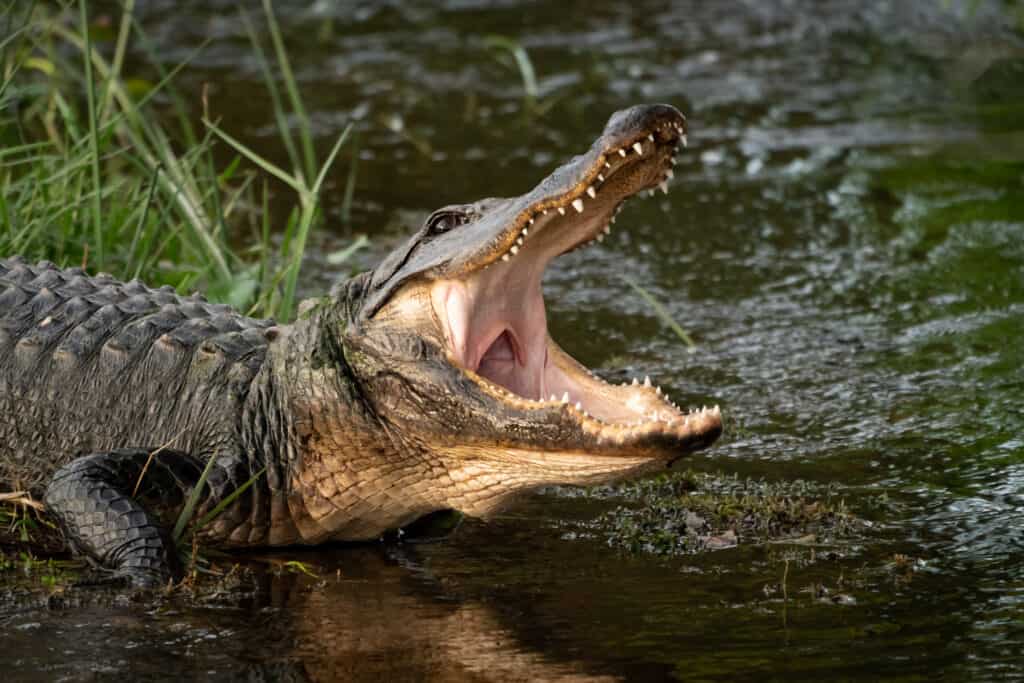
Temperatures between 80°F to 92°F are when alligators are most active.
©Deborah Ferrin/Shutterstock.com
Temperatures between 80°F to 92°F are when alligators are most active. During this weather, they will bask in the sun, hunt, or move from one water source to another. But, to avoid overheating during the hot summer months, alligators find relief in deep waters or rest in shaded areas.
Anytime when it’s under 70°F, alligator activity decreases. They generally stop eating as their metabolism slows down. When temperatures drop below 55°F, alligators become idle and shelter in burrows to stay warm. In the burrows, they will go dormant with other alligators in the same burrow.
Alligators in Columbus: Is It Safe to Swim?
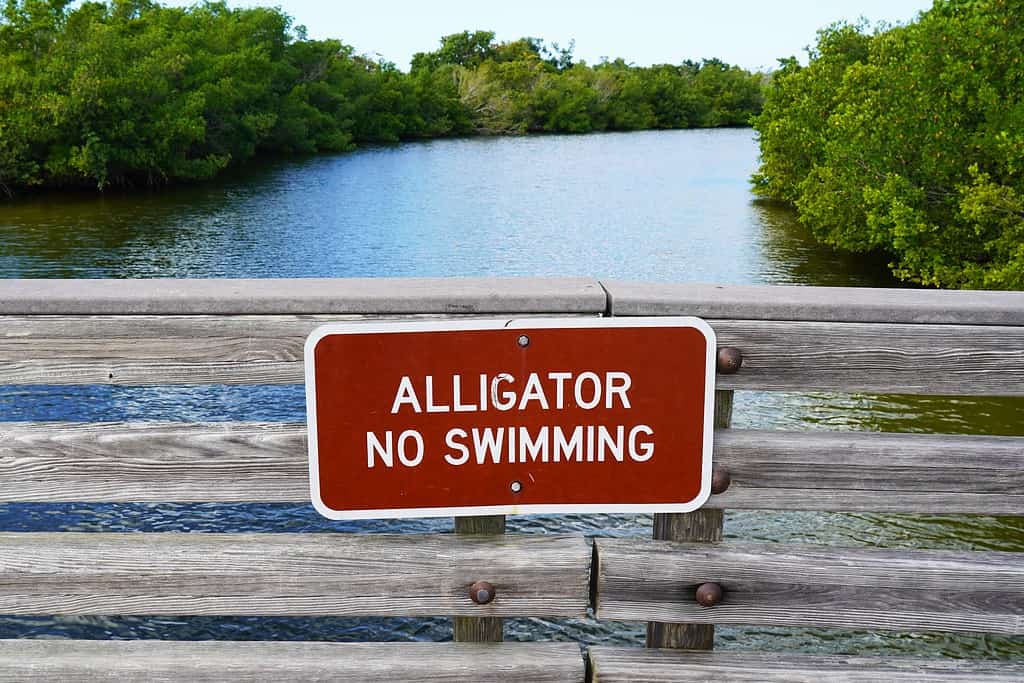
When it comes to alligators in Columbus, it is safe to swim if you observe the safety guidelines.
©Yordan Balabanov/Shutterstock.com
Pick an indoor or outdoor pool if you want to be completely safe this summer. Usually gated and with complete visibility, you rarely will have alligator problems. However, when experiencing the cool water of a lake in Columbus, be sure you are following these safety guidelines.
- Avoid swimming as the sun is going down or at night. Alligators hunt when the sun goes down. Plus, you will have a more challenging time seeing them.
- Don’t swim anywhere with thick vegetation. As ambush predators, alligators use the plant cover to hide until prey comes by. And odds are, you won’t see them hidden in there either.
- Alligators enjoy it when it’s over 80°F. Cooler days mean less alligator activity. And if it’s 70°F or below, alligators’ activity decreases significantly.
- Always be accompanied by a friend, or if possible, swim at a popular location with many other swimmers. All the noise will deter an alligator. Do not swim by yourself.
When it comes to alligators in Columbus, it is safe to swim if you follow these safety guidelines. If you want to check out the most visited swimming locations in Georgia, check them out here.
Avoiding Alligator Attacks
Alligator attacks don’t occur often. They have a natural fear of humans and do not see us as prey. So, if people are around, alligators will retreat. Between 1960-2007, there have only been nine recorded alligator attacks on humans, according to the Georgia Department of Natural Resources.
However, it is dangerous when humans start to feed alligators. This makes alligators bolder and trains them to look for humans for a hand-out. And, if food isn’t given, the alligator might attack.
If taking advantage of an outdoor swim in Columbus, Georgia, ensure it is safe to swim. Examine the location for any alligator activity. And by following the above safety guidelines, you will avoid most alligators.
In Case of an Attack…
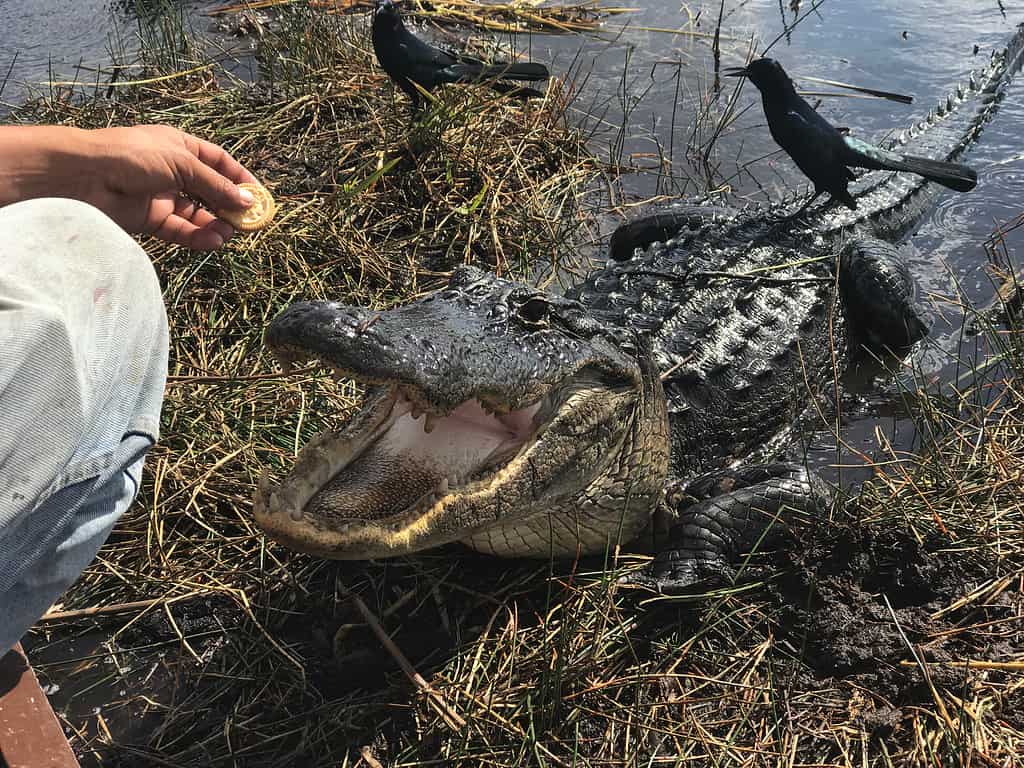
Don’t feed alligators, as it trains them not to fear humans and to seek humans out for food.
©Tande/Shutterstock.com
If, in the unlikely event, you are attacked by an alligator, you must fight back. Alligators are calculating hunters; they retreat if they think their prey will cost too much energy. When you fight back, focus on the alligator’s eyes or jaw joint.
However, if an alligator has you trapped in its mouth, trigger its gag reflex. Use branches or rocks nearby to shove into the back of its mouth. Gagging causes the alligator to open its mouth, giving you a chance to escape. Climb out of the water as soon as possible, as alligators have more of a disadvantage on land.
Also, be sure to get medical attention right away. Even if the bite doesn’t seem deep, alligators’ mouths have a ton of bacteria that will cause an infection.
Summary
By keeping the safety rules and swimming at popular spots, you can be sure you’ll be safe to swim this summer in Columbus, Georgia. If you aren’t provoking an alligator, they will avoid you.
Thank you for reading! Have some feedback for us? Contact the AZ Animals editorial team.

